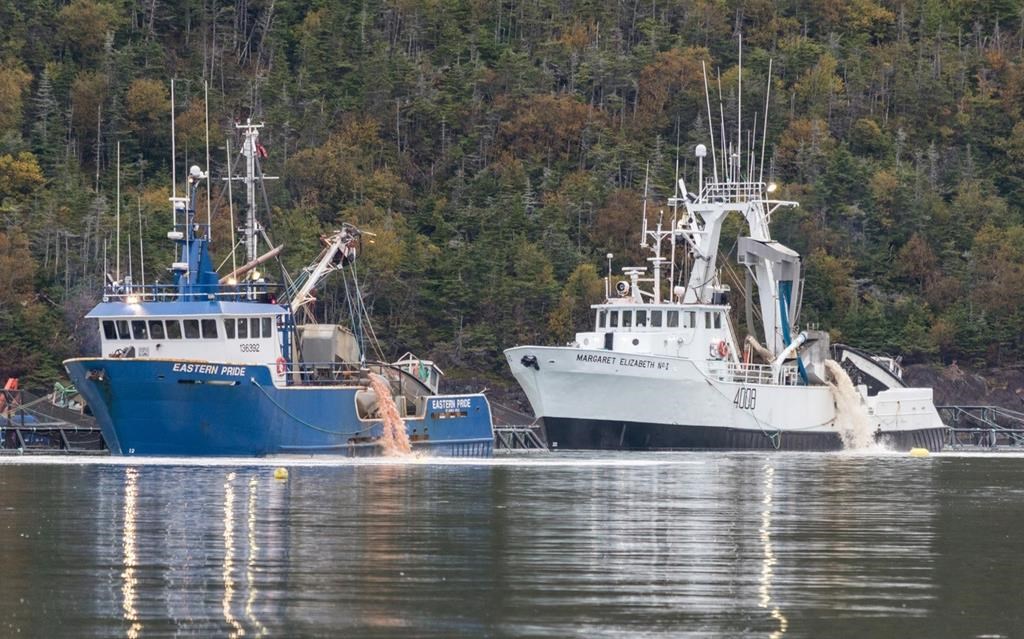Newfoundland and Labrador’s information and privacy commissioner is investigating whether public bodies were obligated to disclose information sooner about a mass die-off of farmed salmon earlier this year.

The investigation announced Thursday will consider what information public bodies knew about the salmon deaths, when that information was acquired, whether there was evidence of harm to the environment or human health, and whether the information was clearly in the public interest.
Northern Harvest Sea Farms reported last month that 2.6 million of its fish died in southern Newfoundland sea cages due to a prolonged period of high water temperatures.
READ MORE: Salmon residue still coating environment around sites of N.L. farmed fish deaths
The company said it first reported the deaths to government on Sept. 3, but it did not publicly address them until weeks later.
Fisheries Minister Gerry Byrne has maintained that it falls on companies to disclose such incidents, but the die-off and subsequent cleanup have sparked questions about the aquaculture industry’s environmental impact, transparency and regulation.
Privacy commissioner Michael Harvey says interpretation of one section in the province’s Access to Information and Protection of Privacy Act could affect what information public bodies are bound to disclose and when.

Get daily National news
NDP legislator James Dinn wrote to Harvey asking whether that section of the act applies in this case.
The section directs the head of a public body to proactively disclose information without an access request if the information relates to risk of harm to the environment or health and public safety.
“This provision has not yet been subject to any reports or guidance issued by the Office of the Information and Privacy Commissioner, and the question requires careful analysis,” a statement from the commissioner read.
Sean Murray, director of research with the commissioner’s office, said the investigation has already started with a letter and request for information sent to the fisheries minister.
He said the office is aiming to complete the review and publish a report within three months.
“It’s a pretty unique matter that we’re looking into,” Murray said.

He said the results of this investigation, looking into a section of the act which has been “overlooked,” will likely set useful guidelines for public bodies making decisions about disclosure in the future.
In a letter to Harvey dated Oct. 30, Byrne said he did not disclose the incident because it was reported by the company to have been caused by an environmental event and not disease, and because his department was looking into the case. He said he decided to share information after the die-off became public on Sept. 23.
Byrne suspended licences at 10 of the company’s sites earlier this month after he learned the number of mortalities was higher than initially disclosed.
Concerns have been raised about the environmental impact of the event after images of the messy cleanup showed pink residue being dumped back into the water.
Witnesses have described the smell of rotten fish lingering in the area and fatty, oily residue coating nearby beaches and covering the water.
Company spokesman Jason Card said this week that the response efforts are expected to continue into November.
This report by The Canadian Press was first published Oct. 31, 2019.







Comments
Want to discuss? Please read our Commenting Policy first.